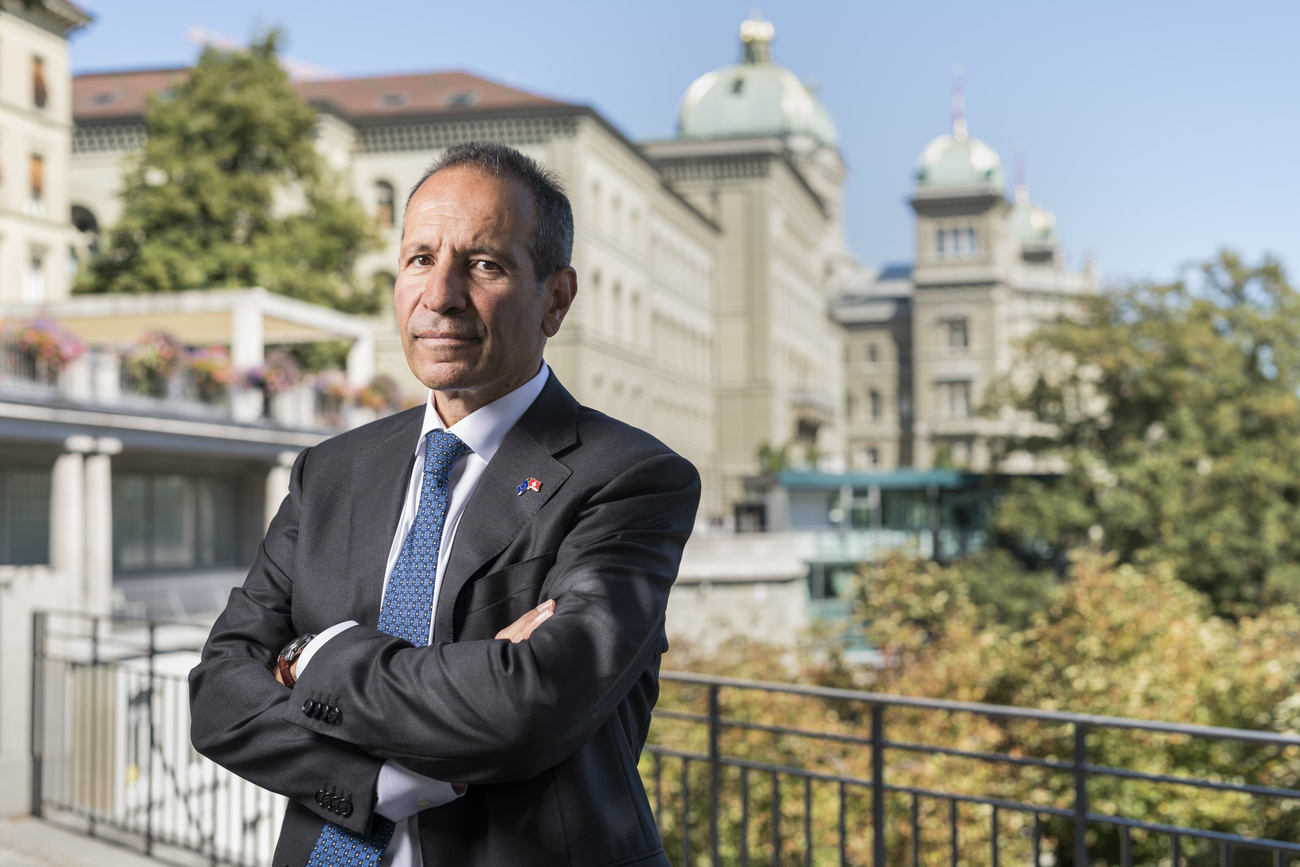
EU ambassador: Switzerland won’t get ‘special treatment’

Switzerland won’t receive any preferential treatment over European Union member states warned the EU ambassador to Switzerland, Petros Mavromichalis.
“The single market is a key strength of the EU. We would weaken the internal market if we allowed a friendly [non-member] country like Switzerland exceptions that the EU member states don’t have,” Mavromichalis told the Neue Zürcher Zeitung newspaper in an interviewExternal link.
“If we start doing that, other countries will ask for this as well. The internal market would become full of holes,” he said.
In the event of a dispute, the European Court of Justice interprets the rules and decides. This must also apply to Switzerland in areas where it participates in the EU internal market, the ambassador argued. The Swiss government has indicated it is in favour of a scenario in which Switzerland would not be subject to arbitration by the European court.
Ties between Brussels and Bern have been strained since Switzerland abruptly decided in May 2021 to end years of discussions on a framework agreement with the EU bloc.
“We were very disappointed that Switzerland broke off the negotiations after more than ten years,” said Mavromichalis. According to the diplomat, the EU is currently examining Switzerland’s proposal to resolve contentious issues on a sectoral basis in various agreements.
Brussels wants all market access agreements to include a legal mechanism for dispute settlement, said Mavromichalis. Some sectoral agreements could include regulations such as safeguard clauses, but this should be the exception. Institutional rules such as free movement of persons and the European directives shouldn’t be excluded from agreements, said Mavromichalis.
“Switzerland wants new access agreements to the common market. But this will only be possible if the institutional issues are resolved. You can’t build a house if the foundations are unstable.”

In compliance with the JTI standards
More: SWI swissinfo.ch certified by the Journalism Trust Initiative




























You can find an overview of ongoing debates with our journalists here . Please join us!
If you want to start a conversation about a topic raised in this article or want to report factual errors, email us at english@swissinfo.ch.